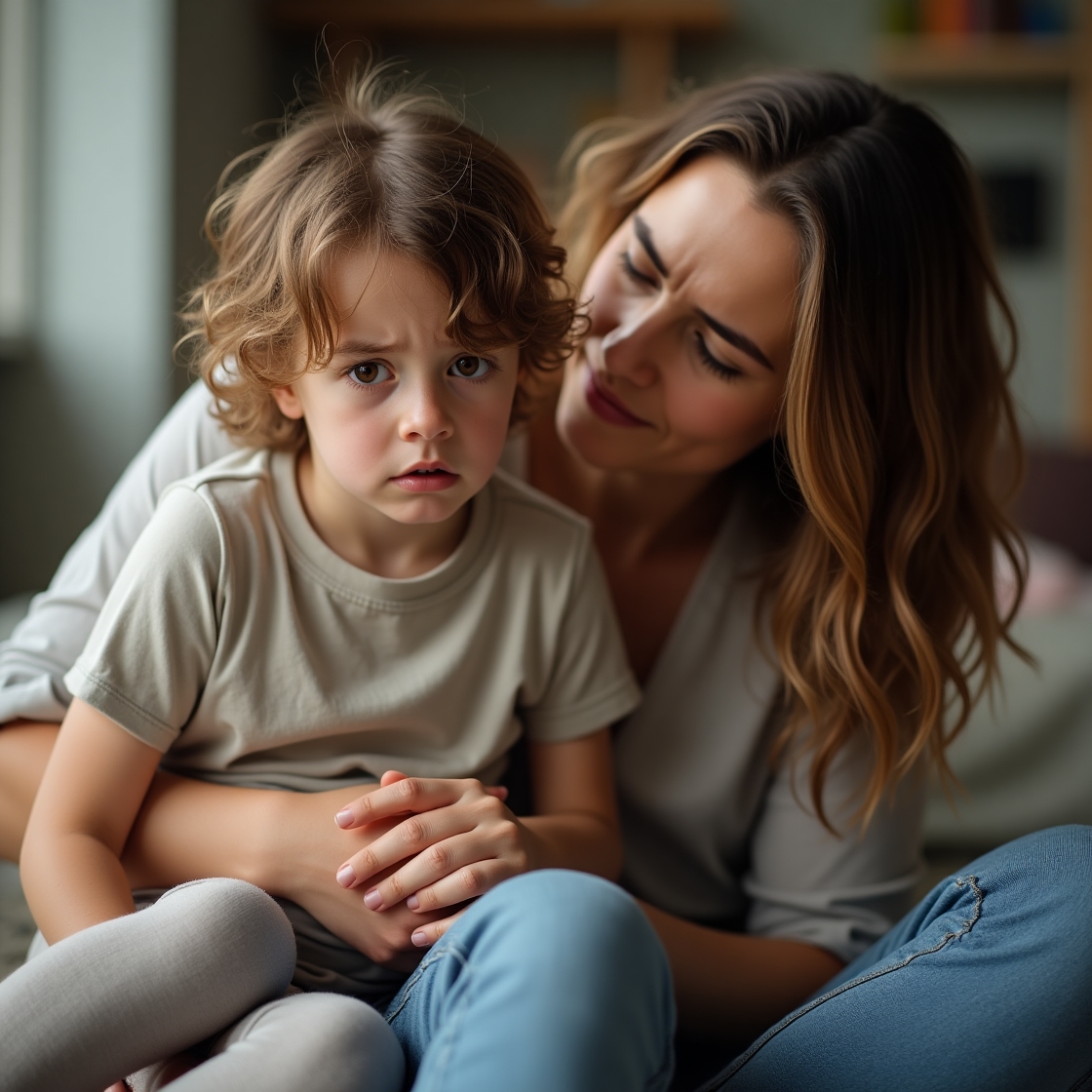Hearing “I hate you” from your child can feel like a punch to the heart. Whether it’s screamed in the middle of a tantrum or whispered in frustration, those words sting—and they can leave you wondering what went wrong.
But here’s the truth: children don’t say “I hate you” because they actually hate you. They say it because they’re overwhelmed, hurt, or trying to express a big emotion they don’t yet know how to handle.
In this article, you’ll learn how to respond to these intense moments with calm, compassion, and strength—without taking it personally.
Why Kids Say “I Hate You”
Children, especially younger ones, often use dramatic language when they feel:
- Powerless
- Frustrated
- Angry
- Embarrassed
- Disconnected
Saying “I hate you” is often:
- A test of boundaries
- A release of emotional overload
- An attempt to gain control
- A signal they’re not feeling heard
It’s not about actual hate—it’s about pain or confusion expressed in immature words.
1. Don’t Take It Personally
Yes, it hurts. But remind yourself: this is not a reflection of your parenting or your child’s love for you.
What they’re really saying is:
- “I’m overwhelmed.”
- “I don’t know how to handle this feeling.”
- “I need you, even though I’m pushing you away.”
Staying calm shows your child that love isn’t conditional—and that emotions can be handled without fear.
2. Stay Calm and Grounded
When you react with anger, shame, or punishment, the emotional fire only gets bigger.
Instead:
- Take a deep breath
- Keep your tone neutral or soft
- Stay steady—even if you’re hurt
You might say:
- “I hear that you’re really upset.”
- “It’s okay to be mad. I’m here for you.”
- “That hurt to hear, but I know you’re having a hard time.”
Your calm is the anchor in their storm.
3. Acknowledge the Feeling Without Approving the Behavior
It’s important to validate the emotion without endorsing the words.
Try:
- “You’re feeling really angry right now. That’s okay.”
- “It’s okay to feel mad, but those words are hurtful.”
This helps your child feel seen while learning that feelings don’t excuse unkind behavior.
4. Don’t Argue or Try to Reason Right Away
When emotions are high, logic won’t land. Avoid saying things like:
- “You don’t really hate me.”
- “After everything I do for you!”
Instead, give your child space to cool down before trying to talk.
Later, you can revisit the situation calmly:
- “Earlier, you said you hated me. Can we talk about what you were really feeling?”
5. Set Boundaries Around Respect
While emotions are always welcome, hurtful words need boundaries.
Calmly say:
- “I won’t let you talk to me like that. Let’s find a different way to say how you feel.”
- “I love you, and I want to help, but I won’t stay in this conversation if you’re being disrespectful.”
Be firm, not punitive. The goal is teaching, not shaming.
6. Repair After the Moment Passes
When things have calmed down, reconnect with your child. Let them know your love hasn’t changed.
Try:
- “I know you were upset. I still love you no matter what.”
- “Let’s talk about what happened and how we can handle it differently next time.”
This reinforces emotional safety and models how to repair relationships.
7. Teach Emotional Language Over Time
Children often lash out because they lack the vocabulary or self-awareness to express feelings in a healthy way.
Help them learn to say:
- “I feel angry because I didn’t get what I wanted.”
- “I’m frustrated you said no.”
- “I feel hurt.”
Books, stories, and role-play are great ways to build this skill between emotional moments.
8. Reflect on Patterns
If “I hate you” is becoming frequent, look deeper:
- Is your child feeling disconnected?
- Are they getting enough positive attention?
- Is something else (school, friendships, routine changes) causing stress?
Sometimes repeated outbursts are a cry for connection or help.
9. Take Care of Yourself Too
It’s okay to feel hurt, frustrated, or discouraged after hearing painful words. Take time to recharge and process:
- Talk with a partner or friend
- Write about the experience
- Remind yourself of the big picture: your child is still learning
You’re human, and this is hard—but you’re doing something incredibly important.
10. Responding with Love Is Not Weakness
Choosing calm over control doesn’t mean letting things slide. It means modeling strength through compassion. You’re teaching your child that:
- Words have meaning
- Love isn’t conditional
- Emotions are valid, but don’t excuse disrespect
Over time, this creates emotional maturity, trust, and security.
Final Thought: It’s Not About the Words
When your child says “I hate you,” they’re not telling the truth of their heart. They’re showing you that they feel out of control and don’t yet have the tools to manage it.
Your job isn’t to fix the feeling—but to guide them through it.
So breathe deep. Stay steady. And keep showing them what it means to love through the storms.
